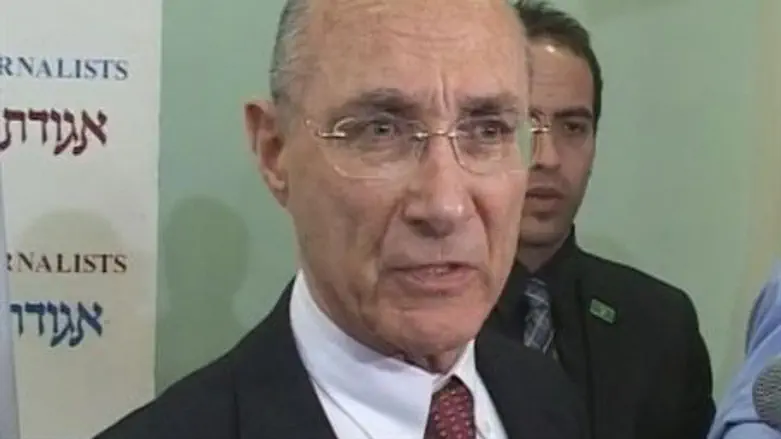
Israel is in the midst of an energy crisis, Energy and Water Minister Uzi Landau said Thursday. It's not a new crisis, but for various reasons, the crisis is more severe this year than in the past, and unless the public does its share to save electricity, Israelis will find themselves sitting in the dark – and in the heat – as the Israel Electric Company turns the juice off in order to save energy.
Landau spoke at a news conference with top officials from the Israel Electric Company. All over the world, Landau said, high temperatures were wreaking havoc this summer, with dozens, if not hundreds, dead in the U.S., Europe, and Asia from the highest temperatures recorded in many years. While temperatures in Israel have not broken records – yet – the weather has been unseasonably hot, and the stress on the IEC's generators has been unprecedented.
Next summer, the squeeze should be relieved considerably, as several competitors to the IEC will receive licenses to sell power, but this summer is still going to be a challenge. And that challenge may peak, Landau said, this weekend, with temperatures in the mid-30s Centigrade (over 100 degrees Fahrenheit) forecast for most of the country. The heat wave is forecast to continue for the coming week, at least.
“We need the help of the public in alleviating shortages. Today, tomorrow, and for the rest of the summer we are going to have a problem,” Landau said. Among the measures that the Ministry has asked Israelis to institute is the turning off of major appliances, including washing machines, dryers, dishwashers, and others during peak afternoon hours. Air conditioners should be set not lower than 25 degrees Centigrade.
Eli Glickman, Chairman of the IEC, said the demand – expected to be around 11,500 megawatts at peak times – would come very close to outstripping the IEC's ability to produce power. If such an event comes to pass, the company will cut off electricity for minutes, or even hours, to different parts of the country until balance is restored in the system. Power will be kept flowing as long as possible to hospitals, defense installations, and the homes of the elderly and sick who have registered with the IEC or National Insurance programs.
A spokesperson for the fire department said that if anyone finds themselves in an elevator during a power outage, they should immediately call for assistance.